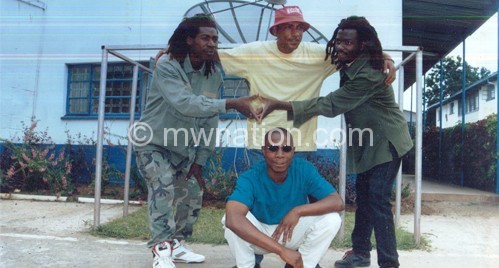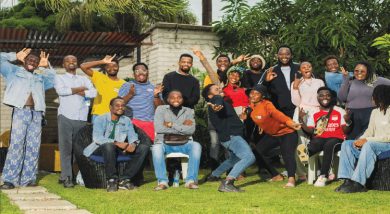The never ending story of Jupetters

Some stories have a happy ending, others don’t. Despite losing all but one of its members, the Juppeters story is far from being over. Up until the turn of the millennium, Jupetters were a household name when it came to reggae music in the country.
The group, which is arguably the first reggae group in the country, started as a mere idea on a crossroads in Ndirande. Although it was a new genre, reggae was quickly making an impression in Africa during the early 80s. It is 1986 and it is a cool thing for youth of certain ages to be playing guitars in the streets. John Namalima alias Nizye Junior, William Phiri alias Bunny Widze, Aston Nathu, Pablo Gusto Zuze and Nicodemus Njolomole fell into this category.
The way Nizye narrates the first meeting of the band, fate should have taken course and directed him and his friend Bunny Widze to the crossroads. The duo habitually went to Blantyre Secondary School for guitar practice. One day, while at the crossroads, they met Jack Black Mandiwa who was coming from the opposite direction and was carrying a guitar. Upon seeing the two also carrying guitars, Mandiwa asked them to play a song.
Without being hesitant, the two strummed a tune on their guitars, instantly impressing Black Mandiwa who impulsively asked them if they could team up for a music career. Nizye and Bunny Widze obliged and, after teaming up with other instrumentalists from around the township, Jupetters Band was born.
After three months, the band was ready to perform. Although they were primarily a reggae band, they made an impression during their first appearance as curtain-raisers for French rock band Cycrop who performed at French Cultural Centre in 1987. Apart from the French group, the new band shared the stage with Gas Machine Head, a local rock band famous for the hit Ananu Musalire.
However, Nizye said the band developed a reputation at BAT Ground when they performed at a show which was organised by Adam Mandeu, a local filmmaker. Jack Black Mandiwa did not get to taste fame as he passed away just when the group was gaining fame.
“We had to replace Jack and we recruited Nicodemus Njolomole, who was nicknamed Nic D the Preacherman because of his hoarse voice,” said Nizye.
Live shows were more popular during the time since there were a few recording studios available then.
Juppeters got lucky as they signed a deal with Studio K and, in 1992 released their debut album Juppeters Burning.
The band performed a few gigs before their manager Patrick Khoza opted out after a year owing to his busy schedule.
Soon after the debut, the band became live performance masters and Nizye recalls one show where he witnessed the glory of fame.
“It was at BAT as we were launching Juppeters Burning. We had walked all the way from Ndirande to the venue with our guitars on our shoulders, but when we reached BAT Ground, we could not believe all the people that were there for us. People went crazy when we played Mwambo,” confesses Nizye.
Nizye says that even when they performed at Lilongwe Community Hall, the venue was fully packed and from that moment on, they never performed at small venues.
In 1997, the group was invited to perform in Cape Town, South Africa but the promoter who had commissioned them ditched them in South Africa.
Stranded in a foreign land, the group had to perform some gigs for three months to raise tickets for their journey back home, with the assistance of former Makasu guitarist George Phiri.
After returning, the group did not release their sophomore effort until 2000 when they released Nkhondo ndi Anansi which was not successful on the market, selling only 30 000 copies.
In the course of recording of the album, the group lost four members and Gusto was on the sick bed. Resultantly, Nkhondo ndi Anansi was recorded by two founding members, Atson Nathu and Nizye at MC Studios.
In 2002 Nizye left for the UK and left the Band in the hands of Aston Nathu and his nephew Chikonda Nyirenda . But in 2003, Nathu passed on and Nyirenda joined his uncle, the only surviving member in the UK.
In 2009 Nyirenda came back to Malawi and started a new band called Iris as Nizye had told him to wait until his return to revive Jupetters. In 2012, Nizye returned to Malawi and restarted Jupetters. With some members from Iris, Jupetters are planning to record their third album in April.





